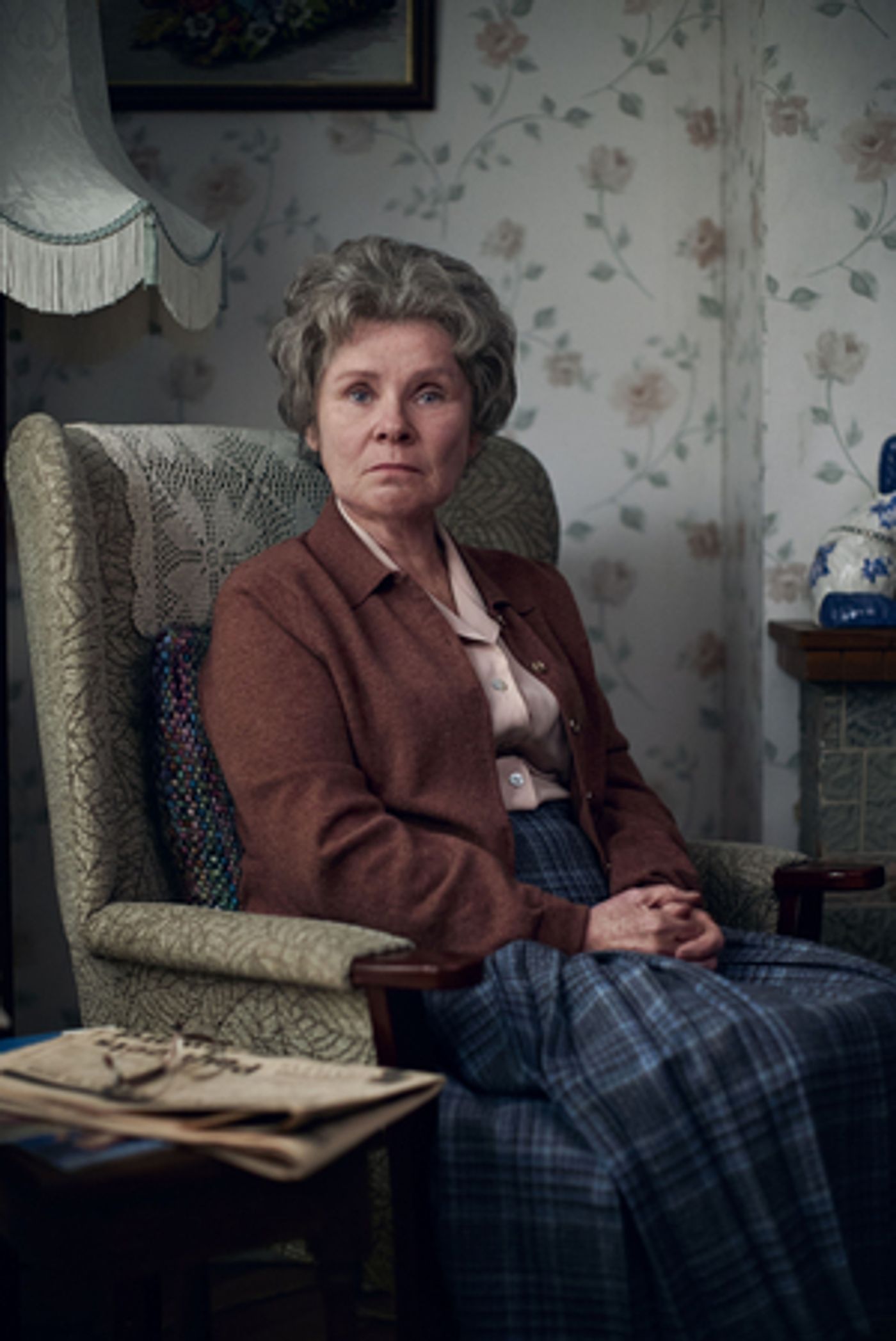Review: TALKING HEADS: A LADY OF LETTERS, BBC iPlayer

![]() Even for those not around for the first TV broadcast in 1988, Alan Bennett's Talking Heads has had a long-lasting resonance. Winning two BAFTAs and an RTS award, the monologues have also been on the school curriculum for many. As monologues, they are much easier to film during these restricted times, but what these new versions prove is that the format still works brilliantly; as a showcase for some superb acting talent and for Bennett's own sharp and darkly witty scripts.
Even for those not around for the first TV broadcast in 1988, Alan Bennett's Talking Heads has had a long-lasting resonance. Winning two BAFTAs and an RTS award, the monologues have also been on the school curriculum for many. As monologues, they are much easier to film during these restricted times, but what these new versions prove is that the format still works brilliantly; as a showcase for some superb acting talent and for Bennett's own sharp and darkly witty scripts.
A Lady of Letters is the first instalment in this series. It would be a daunting task for any actor to take on the iconic version by Patricia Routledge, but Imelda Staunton is an inspired choice for the part, who very much puts her own spin on the character. Staunton plays Irene Ruddock, a woman who is compelled to write letters about every aspect of life that displeases her. The production remains set in the 1980s, but it is easy to see Irene as the equivalent of today's internet troll.
Filmed at Elstree Studios, Staunton sits at a table in a net-curtained bay window on a set that looks like it could be Dot Cotton's house from EastEnders. She leans on the lace tablecloth, hands primly clasped, a desk-tidy and various envelopes around her. Here she tells the audience about her letters to the undertakers and family of a recently deceased acquaintance, to her opticians, the chemist, the council and even the Queen; all while relating her disparaging observations about the new family across the street.
It is clear she feels it is her duty to tell the undertakers about their employees smoking on the job and her local MP that the amount of policeman who wear glasses is a risk to the public. The new family are a concern: the tattooed father does not work, there is no tablecloth on the dining table, and their small child looks dirty and has a bruise on its arm. The 'kiddy' who was with them at first seems to have disappeared. What follows is as surprising as it is tragic.
Staunton shows a brisk and prickly exterior. Irene has nothing meaningful in her life and so fills her time with thinking about other people. There is an intense bitterness and coldness about her, particularly as she sits with her arms folded tightly in one scene, shoulders tight with tension, eyes cruel and dull. But what resonates, particularly at the moment, is her intense loneliness and disappointment with life underneath. By the end of the monologue, Staunton is a revelation, showing a completely changed Irene, in a very different situation.
Bennett's script remains exquisitely crafted, with wry observations about toasting the Queen, dog mess on the street, gas-fired central heating, and lacklustre funeral services. It is the mundane and domestic elevated into something truly captivating. Irene is an interfering and insensitive busybody, but Bennett creates a character with many layers beyond that.
The production feels intimate and quietly theatrical, which is hardly surprising with the wonderful theatre director Jonathan Kent in charge and with Nicholas Hytner as Executive Director. It is subtle, bewitching and incredibly thought-provoking.
Alan Bennett's Talking Heads is available now on the BBC iPlayer
Photo Credit: BBC/London Theatre Company
Reader Reviews

Videos


